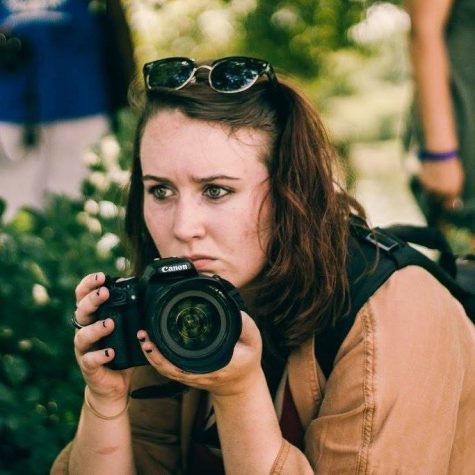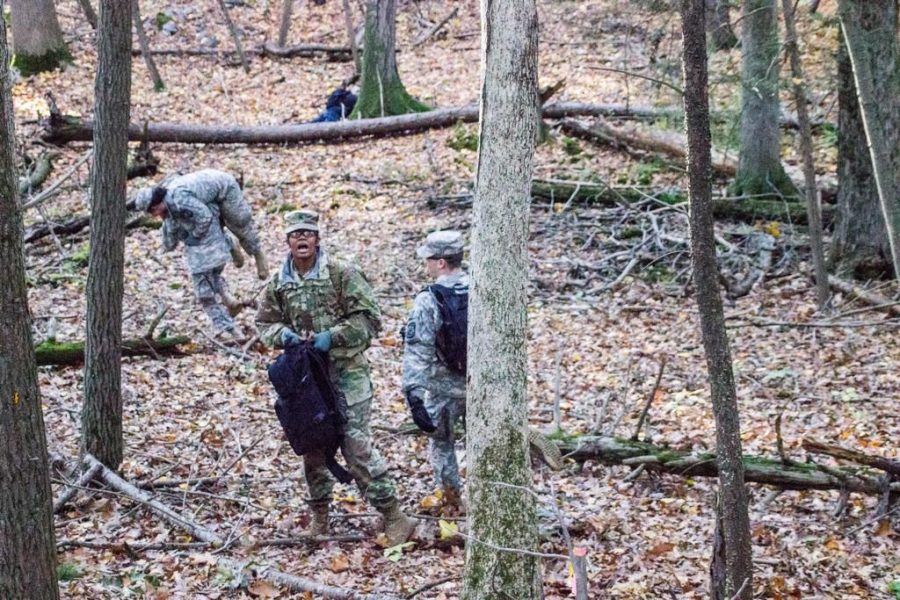ROTC Goes Into the Woods
Friday labs at the University of New Haven serve as unique opportunities for students to gain experience in their career fields. Whether it is mixing tracks in the recording studio, looking at marine life on the Long Island Sound, or in the case of the ROTC, engage in instrumental training that will prepare for when they are in the midst of conflict.
Cadets can be found both in the classroom or out in the woods of Orange Campus learning leadership skills necessary to lead others both here in the United States and when deployed.
All students active in the Army ROTC at the university are required to enroll in a military science course, but is also open to students of all majors to educate themselves on effective military leadership. For the students who are not planning on entering the armed forces upon graduating, they can still gain valuable insight on military operations and language, which can serve as a valuable career tool, especially in terms of communication.
The course serves as in depth training that ranges from small unit to company grade leadership through practical applications to foster effective leaders in the United States Army.
“The weekly Friday Leadership Labs are an important, but small part of the experience in ROTC. Consider it our office space, our classroom, where we are there to learn, work hard, and develop ourselves and the team,” Battalion S2, Jacob Sylvestre, said.
When the cadets are not in the classroom, they could be found running among the woods at Orange Campus executing the tactics and procedures they learn to perfect their strategy. The training exercise also serves as a way for cadets to practice successful communication and teamwork as they maneuver through the forest engaged in tactical scenarios.
“The things learned in ROTC may seem unimportant for someone looking, just a group of cadets running through the woods,” Battalion S2, Mark Wheeler, said. “However, some of those cadets will go on to become infantry officers serving on the front lines. The tactics and techniques learned in ROTC are only building blocks for further military education; however, a strong foundation is extremely important.”
The ROTC also participates in annual field training (FTX) with other schools in the New England area where cadets are educated on general field craft (how to build a tactical shelter and how to properly care for their body in the field). Additionally, the training breaks into squads where they execute recon, movement to contact, raid, and ambush scenarios to further prepare troops.
Serving as a unique experience to successfully prepare students for a career in combat. Niche classes, like most at U.N.H., leads to the formation of a tight-knit community that boosts moral around teamwork.
“From the very beginning, we are expected to be there for each other, regardless of what class we are in (Freshmen, Sophomore, etc.). New cadets will know from the moment they start PT with us (6:00am every morning) that should they ever need help with anything, it is never too far, and there should never be any reservations about asking for that assistance,” Sylvestre said.
“Although what we learn during our Friday Labs is important, it pales in comparison to the camaraderie that we develop just by going through these experiences together. The support system that is established out of uniform works to strengthen the working relationship we have when we are in uniform.”
Whether it is in or out of the classroom, the ROTC at U.N.H. is ensuring that they are fully preparing themselves, as both service men and women and leaders, for their future serving in the United States Army.

Samantha is a senior communication major with a double concentration in journalism and public relations and a minor in political science. Within the paper,...








